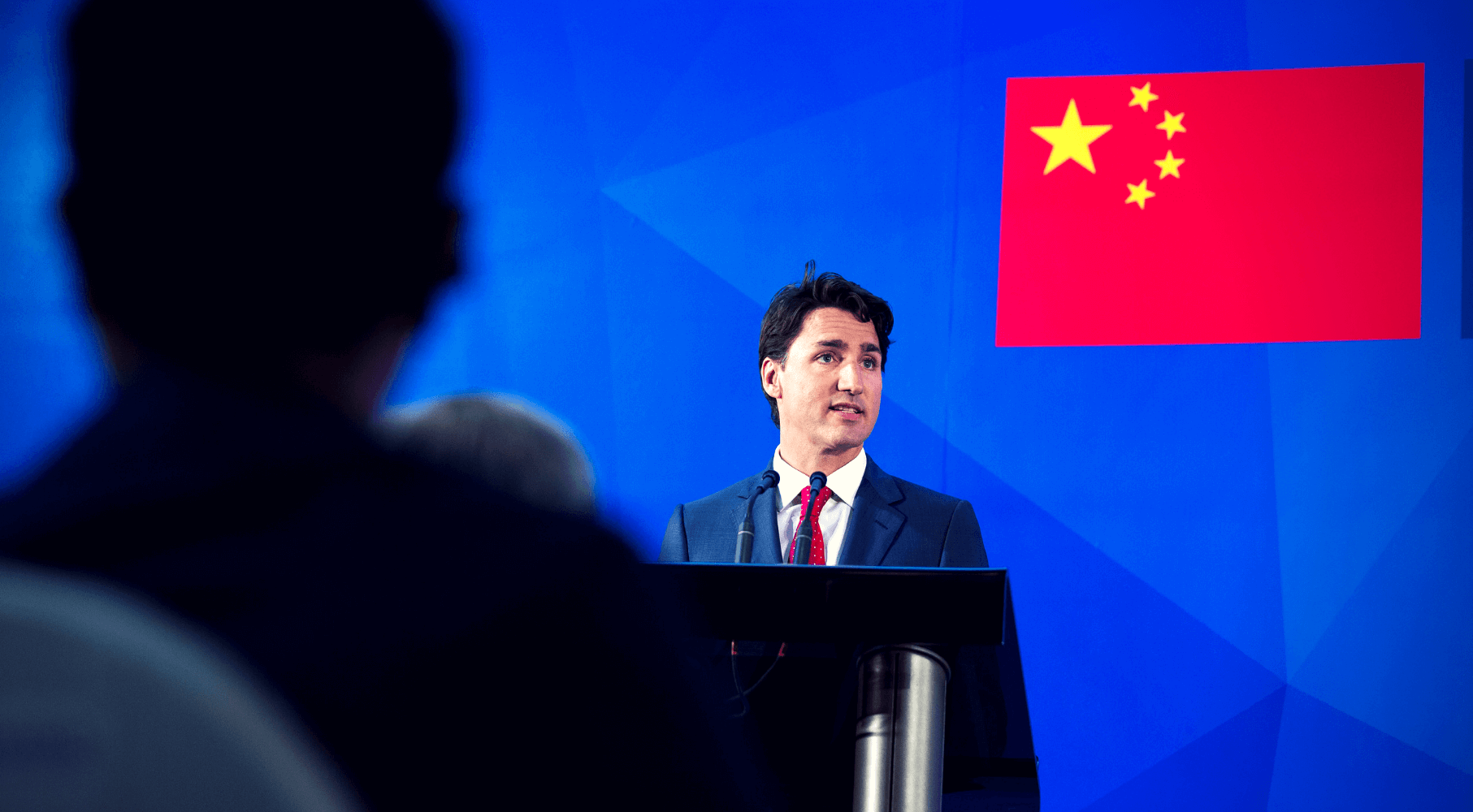 China’s aggressive actions since the arrest of Meng Wanzhou have caused irreparable damage to its reputation in Canada, writes Charles Burton.
China’s aggressive actions since the arrest of Meng Wanzhou have caused irreparable damage to its reputation in Canada, writes Charles Burton.
By Charles Burton, January 25, 2019
The arrest of Huawei CFO Meng Wanzhou in Vancouver on Dec. 1 has been followed by a series of mutual recriminations between Canada and China. The upshot is that this has put the brakes on the Trudeau government’s engagement of China.
The government had sought to enhance Canada’s access to the Chinese market in order to diversify Canada’s economy. In exchange, Beijing had hoped to remove restrictions of Chinese state investment in Canadian natural resources and state acquisition of Canadian high-tech firms, and an extradition treaty to permit the return of Chinese nationals.
None of these concessions would be politically possible now. Indeed, there is no prospect of rebuilding trust and reconciliation between Canada and China’s current regime. And assuaging well-based concerns over the security risk to Canada of Huawei 5G technology is now completely off the table.
The audacious fervor with which the Chinese regime has sought to pressure Ottawa to intervene in a judicial process and order the immediate return of Ms. Meng to Beijing does prompt a few questions.
Why is Beijing prepared to essentially burn down all its diplomatic relations with Canada to force the return of this single Chinese national? The arbitrary arrest of Michael Kovrig and brutal interrogation in a “black jail” is an outrage, especially given China’s evident gross violation of the 1961 Vienna Convention on Diplomatic Relations by attempting to induce Mr. Kovrig to reveal classified information from his time as a diplomat.
The arrest of Michael Spavor is harder to parse. Mr. Spavor is one of the very few foreigners who has a degree of rapport with North Korea’s Kim Jong Un. Does Beijing perceive some sort of Canadian-coordinated deep conspiracy to draw Pyongyang away from China’s orbit? We will all have to wait for Mr. Spavor’s forced false confession to be broadcast on Chinese television to know for sure.
Of course, the prospect of Robert Schellenberg being executed as a device for the Chinese government to express displeasure with Canada is utterly repugnant to all decent-minded people.
In the meantime, the Chinese ambassador’s disastrous attempts at public diplomacy – from his ridiculous assertion that the Canadian government arrested Ms. Meng for reasons of “white supremacy” to his extraordinary meeting with Canadian journalists where Lu Shaye came off both thuggish and pathetic – makes one wonder if it is that he is being humiliated on order from Beijing or if the consequences he faces for failing to bring Meng back to China are the reasons for his increasingly panicky demeanour.
Remarkably, China does not understand that their intimidating tactics and death threat diplomacy have the opposite effect to what is intended. The more the Chinese Foreign Ministry spokesperson attempts to diminish Canada’s rallying of our allies, the more encouraged we should be on the success of this tactic.
Meng Wanzhou is a member of China’s Communist Party super-elite. Is Beijing’s extreme determination to get her home about defending the class privilege of Meng Wanzhou herself? Or is it more about Huawei?
The bottom line is that Ms. Meng could face a lifetime in prison if extradited to the United States to face multiple serious charges of fraud. Under such circumstances, would Ms. Meng seek leniency by providing the U.S. government with information about Huawei’s relationship with China’s security and intelligence apparatus?
Ultimately, the Chinese ambassador’s threats of dire consequences if Canada follows through on the extradition of Ms. Meng ring hollow. Whatever the outcome, this unprecedented crisis in Canada-China relations can only be healed once Meng Wanzhou is no longer on Canadian soil. This may be a very long time off.
Still, irreparable damage to China’s reputation in Canada has been done. Any naive assumptions Canadians may have had about China coming into compliance with international norms have been thoroughly dashed. And China’s future ability to co-opt Canadian policymakers have been seriously debased. Future Canadian engagement with China will be guided by pragmatic calculation alone.
Charles Burton is an associate professor of political science at Brock University in St. Catharines, and a former Counsellor at the Canadian Embassy in Beijing. A longer version of this article first appeared on the Macdonald-Laurier Institute’s Inside Policy blog.




